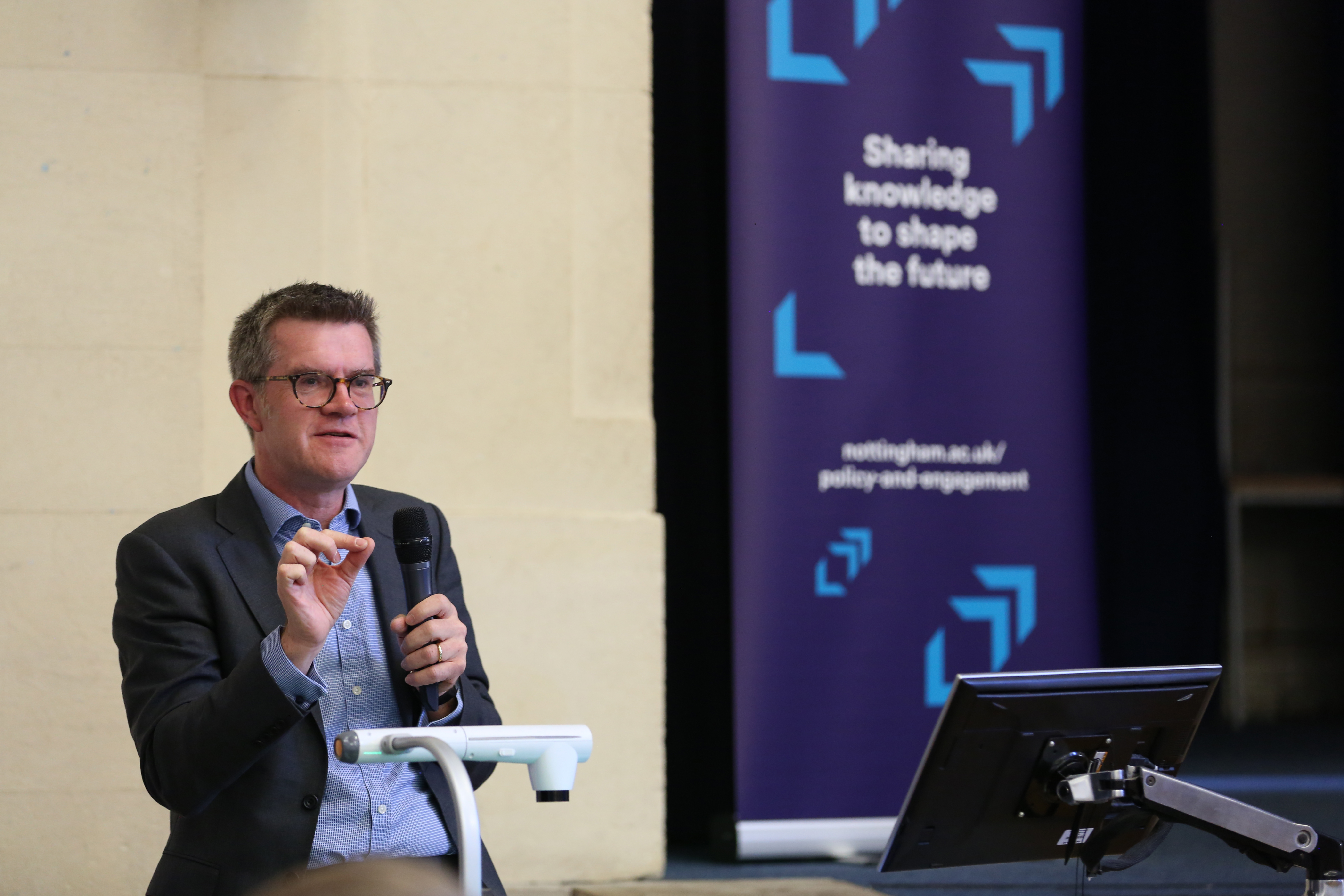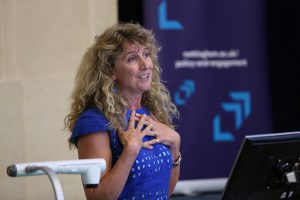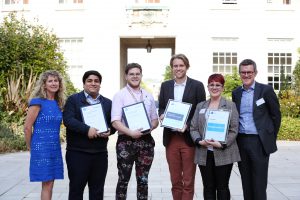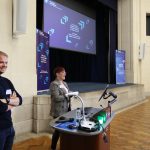
October 2, 2019, by Irena Hulova
Blowing our own trumpet
We held our fourth “Nottingham Engaged” conference on Tuesday 17 September, the second to be run by the Institute for Policy and Engagement.
It was also something of a landmark for me, as September marks a year since I joined the Institute, and the University. I remember last year feeling simultaneously relieved (there is so much going on) and daunted (so what on earth am I going to add…). This year I again marvelled at the amazing things that people are doing to engage with the public and policymakers across the University, and took a little pride in what the great team in the Institute has done to support this activity in the first year of its existence.
The conference is in a way a microcosm of what the Institute is there for. It is a forum for developing and sharing expertise in policy impact and public engagement. It brings in external expertise, and draws on that under-used resource we have closer to home: our considerable in-house expertise.
The highlight of the morning for me was the “mini-kucha” presentations showcasing six great examples of public and policy engagement. (A mini-kucha is a short presentation of ten slides which change automatically every twenty seconds, guaranteeing that the speaker is to the point and takes no more than four minutes!). The presentations included:
- Lou Rudkin and Dr Tim Carter telling us about the “Tricky to Talk” partnership with Nottingham Forest Community Trust to encourage football fans to talk about their mental health;
- Dr Peter Chapman explaining the “think bike, say bike” road safety campaign now attracting national Government interest;
- Dr Chloe Holloway setting out her work to change how the police approach people with autism in detention facilities;
- Dr Joanna Robinson exploring her work with local theatres and volunteers to create archives in innovative ways;
- Dr Nick Bennett speaking about the partnership he has built between the School of Chemistry and the local University of the Third Age;
- and Dr Lucelia Rodriguez talking us though the sustainable community energy partnerships the Department of Architecture and the Built Environment have developed.
The presentations showed the variety of our impact and policy work, but also common themes: a commitment to innovate, to engage with and listen to partners, and a mission to make a difference.
The afternoon ended with the first ever Institute Policy Impact and Public Engagement awards, following on from an inspiring keynote address by alumna Dr Amanda Horton Mastin, who led the Red Nose Day, Sport Relief and Make Poverty History Campaigns, expanding Comic Relief’s presence internationally including in the USA, and is now responsible for Marketing, Communications and Fund Mobilisation at Girl Effect. Amanda stayed on to present the awards.

We had wanted to do something that celebrated the wealth of impact and engagement work at the University which often goes on out of the spotlight. We had an amazing field of nominations, and each of us on the judging panel found identifying just three for a shortlist hard enough, let alone picking a winner. However winners there were:
- Professor Rory Cormac won the Best Public Engagement Initiative award for engaging the public with his research on Secret Intelligence and Covert Action through television and radio;
- Professor Paul Mizen’s work with the Bank of England to understand business investment as we move to Brexit won the Best Policy Impact Initiative award;
- Dr Sarah Cassidy was our Public Engagement rising star for her work with autistic people and their allies to prevent suicide among people with autism;
- Dr Katarina Schwarz won the rising star award for policy impact for her work on antislavery policy both in the UK and globally;
- And Lou Rudkin won the Keystone award which celebrated the contribution of non-academic staff, for her work with Nottingham Forest Community Trust encouraging football fans to talk more openly about their mental health.

The conference also hosted the Graduate School’s Emerging Star awards recognising the work of PhD students on policy impact and public engagement, with Mohsen Gul winning the Policy award and Matthew Young the Public Engagement award. Congratulations once again to all the winners, and thank you to everyone who was nominated for all the work you are doing.
We have already started thinking about Nottingham Engaged 2020, which is likely to take place on 10 September, so pencil it into your diaries now. The event is all about learning, and one of the things we have learned from your feedback is that you would like to have more on the why of engagement as well as the how, so we will be exploring how we do that in next year’s event. If you have any other thoughts about how we can improve the event, do let us know.
Written by Stephen Meek, Director of Institute for Policy and Engagement
No comments yet, fill out a comment to be the first




Leave a Reply